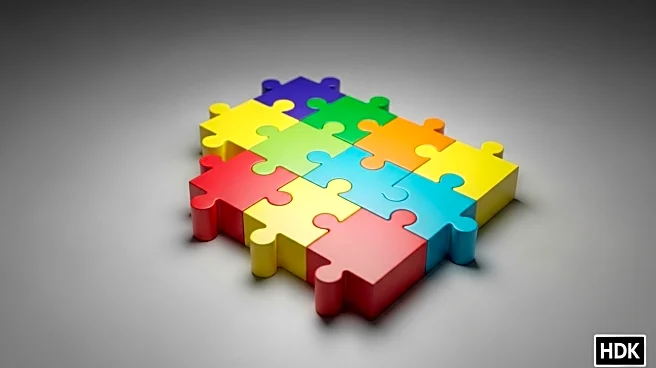What's Happening?
Humza Yousaf, Scotland's former first minister, has expressed concerns about increasing intolerance towards immigration in Scotland. He attributes this shift to the 'toxicity' of debates surrounding multiculturalism in England, which he believes have influenced attitudes north of the border. Yousaf, who was Scotland's first Asian and Muslim first minister, shared these views in a BBC Radio 4 documentary titled 'Scotland Wants You.' The documentary explores whether Scotland's attitude towards migrants differs from the rest of the UK. Recent protests outside asylum hotels in Scotland, resulting in several arrests, have highlighted the charged atmosphere around migration. Social media campaigns have also seen flags raised on lampposts as symbols of national identity. Yousaf criticized the use of soundbites like 'we're all Jock Tamson's bairns,' suggesting they mask genuine but misplaced public concerns about immigration.
Why It's Important?
The growing intolerance towards immigration in Scotland has significant implications for social cohesion and political discourse. As immigration becomes one of the top concerns for Scots, according to recent surveys, this shift could influence public policy and political strategies. The cooling attitudes towards immigration, as noted by Sarah Kyambi from Migration Policy Scotland, suggest a potential shift in Scotland's traditionally more positive stance on immigration compared to other parts of the UK. This change could impact Scotland's demographic trends, economic growth, and its ability to attract international talent. Additionally, the hardening attitudes may lead to increased political polarization and challenges in addressing immigration-related issues effectively.
What's Next?
The documentary and recent surveys indicate a need for political leaders and policymakers to address the growing concerns about immigration in Scotland. This may involve engaging in more nuanced discussions about the benefits and challenges of immigration, as well as addressing the economic and social factors contributing to these concerns. Political parties may need to reassess their positions and strategies on immigration to align with changing public sentiments. Furthermore, ongoing research and dialogue will be crucial in understanding and addressing the root causes of these shifting attitudes.
Beyond the Headlines
The increasing intolerance towards immigration in Scotland raises ethical and cultural questions about national identity and inclusivity. As debates around immigration become more polarized, there is a risk of marginalizing immigrant communities and exacerbating social divisions. This development also highlights the broader challenges of balancing national identity with multiculturalism in a globalized world. Long-term shifts in public attitudes could influence Scotland's cultural landscape and its role as a welcoming destination for immigrants.












